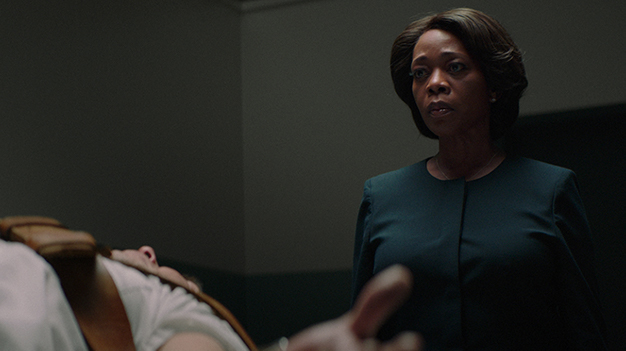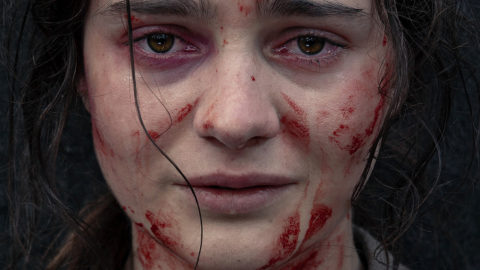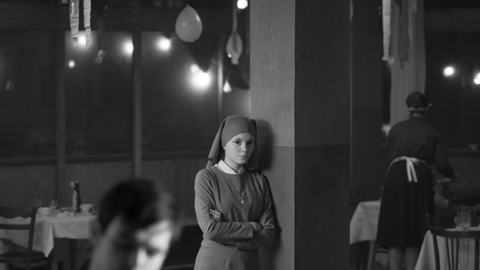Sundance Dispatch: Clemency

In keeping with Sundance 2019’s spotlight on complex and conflicting women-protagonists, Chinonye Chukwu’s Clemency centers on a prison warden, who, at the start of the film, is overseeing her 12th state execution. It’s a scene of calm, clinical horror: the ill-fated prisoner is strapped onto an operating table in a small, fluorescent-lit room, with a pastor standing by at his feet; his family watches from the other side of a window, their sobs muffled by the glass. In the midst of it all, the warden, Bernadine (Alfre Woodard), keeps the proceedings moving with stoic instructions and nods. As the medics prepare the lethal injection, she leans in towards the prisoner and asks, “Can I get you anything?”
At the Eccles Theater in Park City, where the film screened last Tuesday as part of the Sundance Festival’s U.S. Dramatic Competition, this moment elicited a mix of laughs and gasps. Bernadine’s pretense of normalcy—of etiquette, even—in such ghastly circumstances seemed absurdly cruel, on the one hand, and admirably professional, on the other. It’s the blurry line between the two that Chukwu explores with her extraordinarily sensitive second feature, which chronicles Bernadine’s coming-undone as she confronts the execution of yet another prisoner.
Speaking at a cafe after the screening of her film, Chukwu says that she was inspired to tell this story after Troy Davis, a man from Georgia, was executed in 2011 despite significant doubts about his guilt and decades of appeals and protests against his sentence. “The morning after he was executed, so many of us were feeling a complexity of emotions,” says Chukwu. “And I thought, what must it be like for the people in the room? What are the psychological consequences of taking human life as part of your job?”
Chukwu, a film professor at Wright State University in Dayton, Ohio, began her research in 2014 by volunteering on the clemency case of Tyra Patterson, a woman who was freed last year after 22 years in prison for a crime she did not commit. Soon after, Chukwu created “Pens to Pictures,” a program through which she teaches female inmates how to make short films. “I thought, there are so many stories in this prison that will never leave these walls,” she says. “And my ability to help people tell their stories should not be confined to the privileged walls of the college classroom.”
Chukwu sought feedback on her script from both her students and the correction officers at the prison, which helped “deepen the humanity and compassion” of the story, she says. The extensive time she spent volunteering at the prison—8 to 10 hours on some days—also familiarized her intimately with the nuances of incarceration; she was especially struck, she says, by the “boringness and routine” that pervades it. In Clemency, with the aid of cinematographer Eric Branco, Chukwu effectively drives home the oppressive mundanity of the prison space: the shots are static and quiet and the colors dull and muted, painting a canvas of existential drabness against which the film’s ethical dilemmas play out. “We were also very intentional about the rigidness and meticulousness of the framing as an extension of Bernadine’s emotional detachment,” says Chukwu, citing Paweł Pawlikowski Ida (2013) as one of the inspirations for Clemency.
As the person in charge of maintaining the routine of the prison, Bernadine occupies a paradoxically powerless position within the circus of capital punishment: she oversees every step of the process, issuing orders, approvals, and denials, but she has no authority in deciding who dies or why. The brutal irony of “her job,” as she describes it over and over again in the film, is made apparent in one of Clemency’s most moving scenes. Days before the execution of a young man named Anthony Woods (Aldis Hodge), Bernadine visits his cell and describes to him the exact procedure of his death, down to “at that point, the medical personnel will confirm that the execution is complete.” As Bernadine struggles to maintain her composure and Woods comes to terms with the cognitive shock of the information, both Woodard and Hodge offer up stunningly internalized performances, the resounding din of their turmoil almost audible in the quiet scene. “It’s a moment of active containment on the part of both characters,” says Chukwu, “and I wanted to hold on to that—I did not want to let the audience off the hook.”
Modeled after Troy Davis, Anthony Woods’ case is depicted as fraught with doubt and high-profile controversy; the chants of protesters outside the prison can be heard throughout the film, adding to Bernadine’s growing chagrin. But, even as Clemency invests in humanizing Woods’ character, Chukwu is careful to leave his guilt inconclusive. “I don’t want the audience’s ability to see and feel his humanity be contingent upon his innocence or guilt,” she says. “We shouldn’t define people by their worst possible acts, and I think that’s a big part of the humanity this film is rooted in.”
Ultimately, it’s Bernadine’s humanity that’s at stake in Clemency. She’s a woman who has taught herself not to feel, withdrawing wearily into an “empty shell,” as her husband (played by a wonderfully gentle Wendell Pierce) describes her. The call for Woods’ pardoning is also a call for her own pardoning. Alfre Woodard is miraculous in the role, for which, according to Chukwu, she spoke to several wardens and death row prisoners in Ohio. In the film’s final scene—a long, single take that culminates the methodical slow burn of the narrative—Woodard distills the complex moral questions of Clemency into the simple thing that capital punishment (and incarceration in general) robs of its facilitators: the human right to feel something.
Devika Girish is a freelance film critic. She grew up in India and currently lives in Los Angeles.






